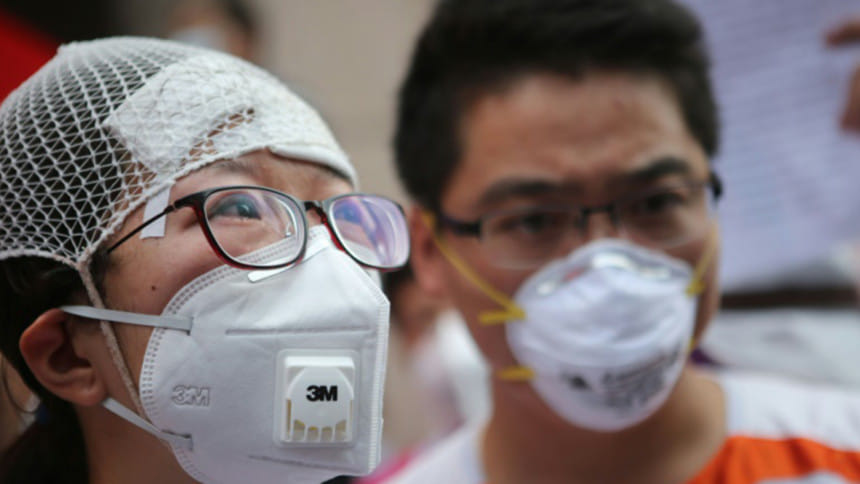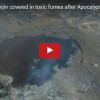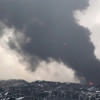Cyanide 350 times above limits at China blast

Cyanide levels more than 350 times standard limits have been detected in water close to the site of deadly explosions in the Chinese port city of Tianjin, officials said Thursday.
The Tianjin environmental protection bureau said the chemical was detected at 25 water monitoring sites within the cordoned-off area around the blast site on Wednesday.
"An excessive level of cyanide was detected in eight locations with the highest reaching 356 times" the permitted level, the bureau said.
Authorities have previously said that cyanide tests had shown levels 28 times limits. The environmental bureau statement did not explain the sudden spike higher.
Of the 16 test points outside the alert area, cyanide was detected at six, but all below the normal limit, the environment bureau said.
The blasts at a hazardous goods storage facility last week triggered a giant fireball and killed at least 114 people. More than 60 others are missing, with seven of the recovered bodies yet to be identified.
The explosions have also sparked fears of toxic pollutants contaminating the air and water of the city, which has a population of around 15 million people.
About 700 tonnes of highly poisonous sodium cyanide were at the site, officials have said.
Sodium cyanide, which has a variety of industrial uses including gold mining, is a toxic white crystal or powder. It can release hydrogen cyanide gas, used in gas chamber executions in the US.
Acute exposure at lower concentrations can cause weakness, nausea and eye and skin irritation while chronic exposure can affect the cardiovascular and central nervous systems, according to the US Environmental Protection Agency.
State broadcaster CCTV reported that the average level of cyanide in the water filling a huge crater at the centre of the blast site was more than 40 times average.
"All the polluted water is contained in the cordoned off area," environment protection official Tian Weiyong told reporters. "We won’t drain it until we clean it up."
Recovery personnel have built a dam of sand and earth around the blasts' central 100,000-square-metre (120,000-square-yard) "core area" to prevent pollutant leakage, and officials insist air and water are safe.
But locals openly express doubts and international environmental environment group Greenpeace has urged caution.
President Xi Jinping and other top leaders called Thursday for those responsible to be held accountable, the state-run Xinhua news agency reported.
State media have reported that 10 executives from Tianjin Rui Hai International, the company that operated the warehouse storing the dangerous chemicals, were detained after the blasts.
China's People's Liberation Army (PLA), meanwhile, has ordered inspections of its caches of weapons and ammunition in the wake of the Tianjin explosions, a military newspaper reported.
China's army and armed police were told to check warehouses holding weapons, ammunition, fuel, chemicals, explosives and toxic materials, the PLA Daily said.
The instructions came after state media reports last week that the State Council Work Safety Commission announced nationwide inspections of businesses involved in dangerous chemicals and explosives.

 For all latest news, follow The Daily Star's Google News channel.
For all latest news, follow The Daily Star's Google News channel. 





Comments